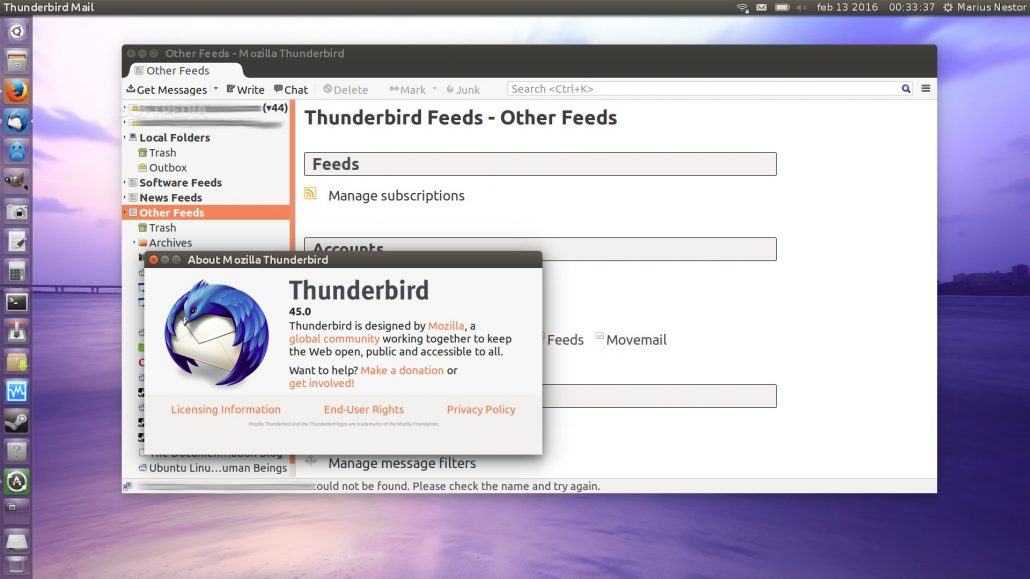

#Portable thunderbird for linux windows#
This feature has been a default part of the Windows version since forever, but it wasn’t enabled by default for Linux until Firefox 115, released only in early July 2023. The best and most visible example of that is hardware video acceleration. The love the Linux world has for Firefox is not reciprocated by Mozilla in the same way, and this shows in various places where issues fixed and addressed on the Windows side are ignored on the Linux side for years or longer.

Firefox is first and foremost a Windows browser, followed by macOS second, and Linux third. Worse yet, Falkon uses Chromium through QtWebEngine, and GNOME Web uses WebKit (which are updated separately from the browser, so browser releases are not always a solid metric!), so both are dependent on the goodwill of two of the most ruthless corporations in the world, Google and Apple respectively.Įven Firefox itself, even though it’s clearly the browser of choice of distributions and Linux users alike, does not consider Linux a first-tier platform. Falkon, meanwhile, is updated only sporadically, often going years between releases. For instance, none of the major Linux distributions ship GNOME Web as their default browser, and it lacks many of the features users come to expect from a browser. While both GNOME and KDE nominally invest in their own two browsers, GNOME Web and Falkon, their uptake is limited and releases few and far between.
#Portable thunderbird for linux download#
For the longest time now, desktop Linux has relied virtually exclusively on shipping Firefox – and the Mozilla suite before that – as their browser, with some users opting to download Chrome post-install. This is the environment desktop Linux distributions find themselves in. And then there’s Firefox, trailing far behind as a distant third – and falling. Chrome and its various derivatives are vastly dominant, followed by Safari on iOS, if only because you can’t use anything else on iOS. Undertaking the mammoth task of building a browser from scratch is not something a lot of people are interested in – save for the crazy ones – made worse by the fact that competing with the three remaining browser engines is basically futile due to market consolidation and monopolisation. The problem here is that making a capable browser is actually incredibly hard, as the browser has become a hugely capable platform all of its own.

Having an at least somewhat useable browser is what elevates an operating system from a hobby toy to something you could use for more than 10 minutes as a fun novelty. Without a capable, fast, and solid browser, the usefulness of an operating system decreases exponentially, to the point where I’m quite sure virtually nobody’s going to use an operating system for regular, normal use if it doesn’t have a browser. There’s no denying that the browser is the single-most important application on any operating system, whether that be on desktops and laptops or on mobile devices.


 0 kommentar(er)
0 kommentar(er)
